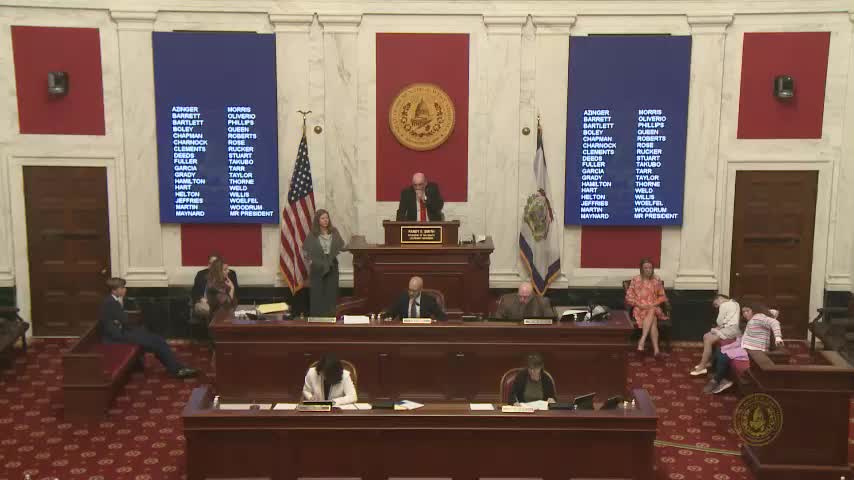Senate adopts resolution urging federal action on stream, river restoration to reduce flooding
Get AI-powered insights, summaries, and transcripts
Subscribe
Summary
The West Virginia Senate unanimously adopted Senate Resolution 50, asking federal agencies to evaluate and act on stream and river restoration projects to address repeated flooding in southern and other counties.
The West Virginia Senate on an on-record session adopted Senate Resolution 50, asking the federal government to evaluate and act on stream and river restoration projects to address repeated flood damage.
The resolution, introduced from the floor by the senator from Logan, requests that Congress, the president and federal agencies — including the U.S. Army Corps of Engineers — evaluate and pursue restoration work that could mitigate recurring flooding across the state.
Supporters said the measure is intended to reduce repeated FEMA responses, protect property and infrastructure and save lives. "This is nothing more than stream restoration," the senator from Logan, state senator, said when he asked colleagues to print copies of the resolution and send it to Washington. "We could be saving a lot of money if FEMA didn't have to come in every year, every other year, and fix things."
The resolution drew floor remarks from senators who represent counties repeatedly hit by floods. The junior senator from the second, state senator, said he grew up in McDowell County and urged federal engagement to stop the recurring disasters. Senator Flamingo, state senator, told colleagues, "This isn't just a property issue. This is a life issue." The senator from Summers, state senator, described erosion of sewer and water lines and stream banks and said local governments lack the resources to repair them.
The sponsor said the package should be copied and sent to the state's federal delegation and the Corps of Engineers for action. The measure passed by voice vote and was recorded as adopted.
The resolution does not create state programs or appropriate funds; it asks federal authorities to evaluate and act. Senators urged staff and colleagues to help distribute the resolution to federal representatives and agencies for consideration.
Senate action: the chamber adopted Senate Resolution 50; the clerk was directed to print remarks in the journal appendix on request.
Future steps: the resolution is a formal request to federal bodies; it does not itself authorize projects or funding and would require federal action to produce on-the-ground restoration work.
